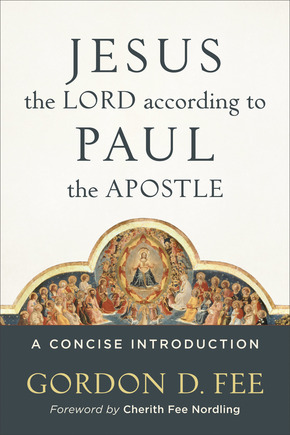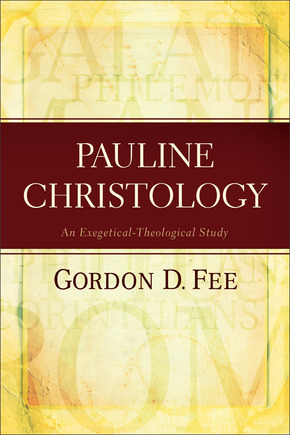Gordon Fee: Jesus the Lord according to Paul the Apostle, reviewed by Craig S. Keener
 Gordon D. Fee, Jesus the Lord according to Paul the Apostle: A Concise Introduction (Grand Rapids: Baker Academic, 2018), 201 + xxii pages.
Gordon D. Fee, Jesus the Lord according to Paul the Apostle: A Concise Introduction (Grand Rapids: Baker Academic, 2018), 201 + xxii pages.
Jesus the Lord according to Paul the Apostle will both educate and resonate well with its intended audience. One who has heard Gordon Fee preach can hear him preaching in this book, passionately communicating the fruits of his exegesis in language that can profit nonscholars as well as academicians. As I noted in my comments to the publisher, the book is “intertextually rich and theologically provocative,” inviting readers “to rethink traditional academic constructions of Paul’s theology in light of the primary data provided more conspicuously by Paul’s own letters.” While not ignorant of wider scholarly opinions, in this book Fee plunges the reader into more immediate contact with Paul’s own words.
 Fee’s extensive Pauline Christology: An Exegetical-Theological Study (Hendrickson, 2007; Baker, 2013), which treats all the present work’s questions in far greater detail, is not on a level accessible to the average reader (sort of like my four-volume Acts commentary). By contrast, Jesus the Lord offers a more accessible introduction, in the way that his Paul, the Spirit, and the People of God (1996) complemented Fee’s larger academic tome on Pauline pneumatology, God’s Empowering Presence: The Holy Spirit in the Letters of Paul (1994).
Fee’s extensive Pauline Christology: An Exegetical-Theological Study (Hendrickson, 2007; Baker, 2013), which treats all the present work’s questions in far greater detail, is not on a level accessible to the average reader (sort of like my four-volume Acts commentary). By contrast, Jesus the Lord offers a more accessible introduction, in the way that his Paul, the Spirit, and the People of God (1996) complemented Fee’s larger academic tome on Pauline pneumatology, God’s Empowering Presence: The Holy Spirit in the Letters of Paul (1994).
Jesus the Lord according to Paul the Apostle is certainly accessible. The foreword also is a touching tribute from Fee’s daughter Cherith Fee Nordling, a theologian in her own right.
As an exegete who has written commentaries on 1 Corinthians, Galatians, Philippians, the Thessalonian correspondence and the Pastorals, Fee systematizes some elements of Pauline Christology only after inductive study of the biblical text. Granted, he displays unabashed theological commitments, but they are commitments ably articulated and defended, reflecting carefully considered convictions. For example, although he sees Jesus as divine, he rejects application of the title “God” to Jesus in Rom 9:5 (124n1).
Some of the convictions that he articulates are less widely shared than others. As defended in his Pastorals commentary, Fee accepts a thirteen-letter Pauline canon (albeit with a different amanuensis and thus different vocabulary in the Pastorals; cf. Jesus the Lord, 125n1). Nevertheless, Fee establishes his central case for divine Christology more than adequately from the undisputed letters. (Given their distinctive content, the Pastorals do not figure as heavily in this work as do the earlier letters in any case.) For those of us who do accept the more disputed letters as Pauline at any level, however, Fee’s treatment of ideas there, alongside those in the undisputed epistles, may prove very enlightening for interpretation.
Although a more popular work includes much less documentation than the academic work on which it is based, it can sometimes also provide a more mature synthesis of the issues, highlighting the issues that further reflection deems most central. In Jesus the Lord, Fee develops the central elements of his case clearly.
Category: Biblical Studies, Winter 2019


